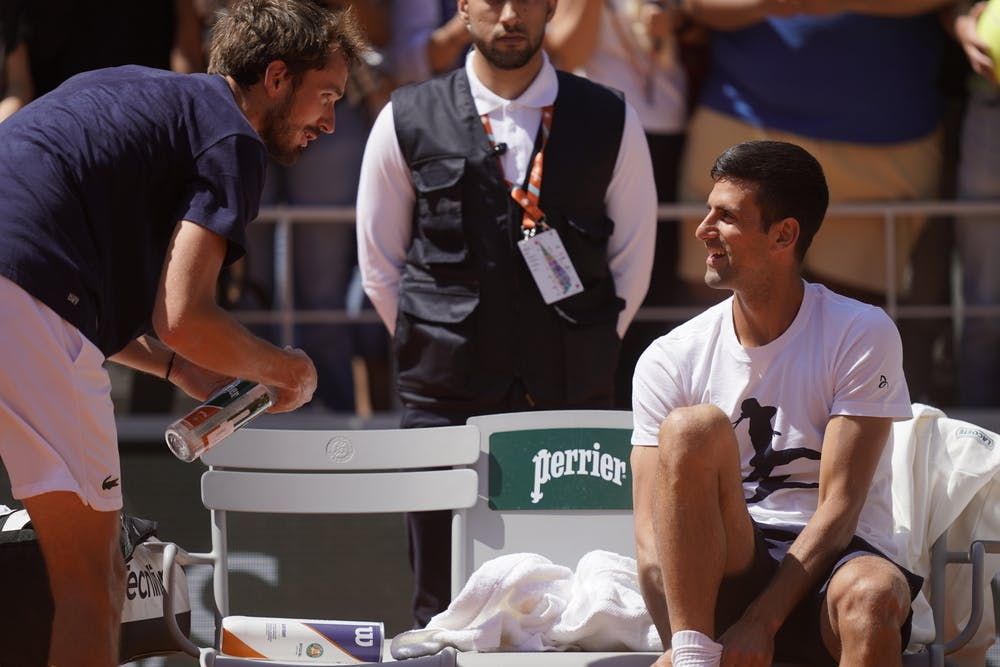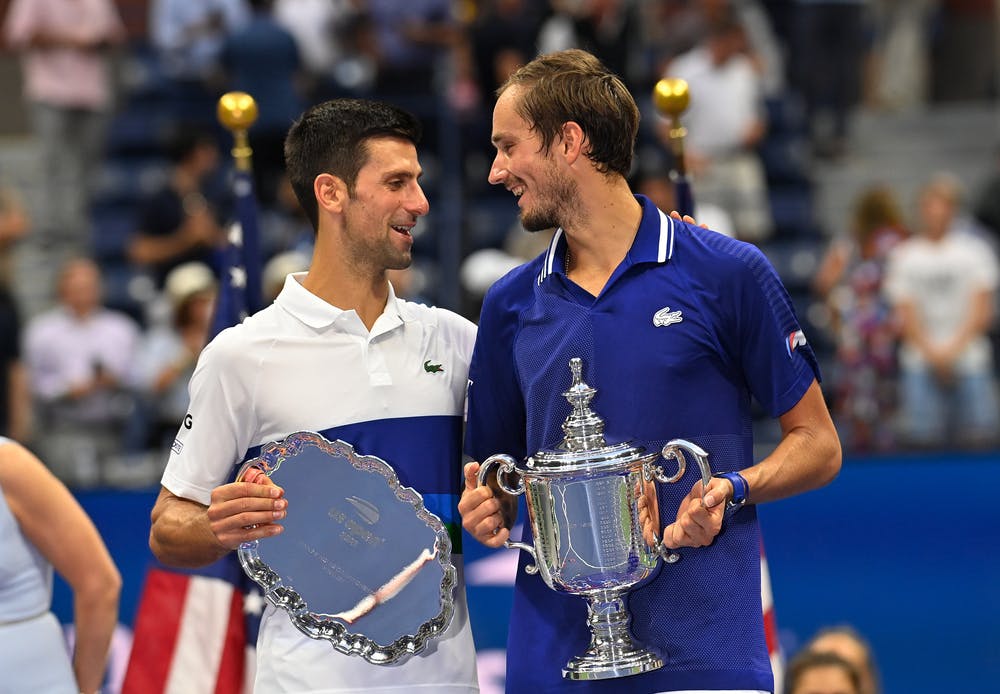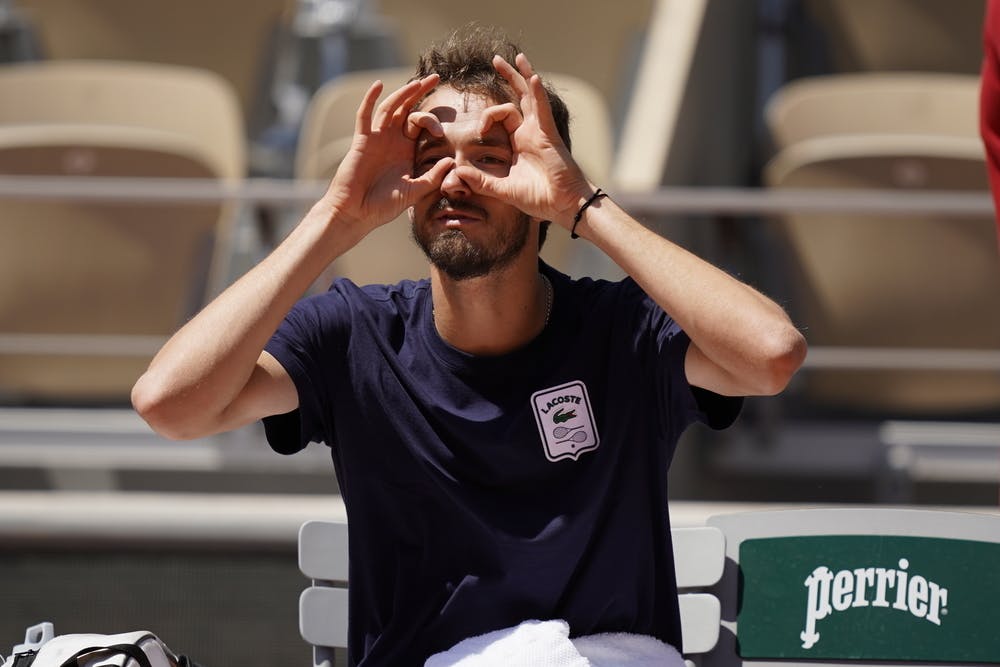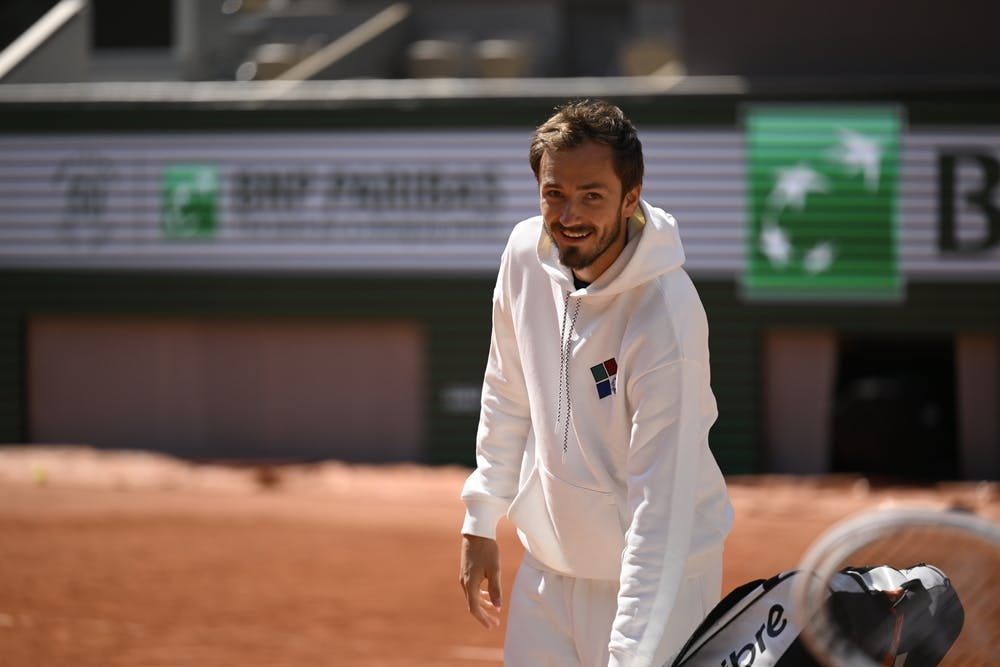Daniil Medvedev has made an honest confession.
The 28-year-old has already accomplished so much in tennis. He was world No.1, is a Grand Slam champion, and has won 20 different titles at 20 different tournaments.
Former world No.1 keen to build on strong 2023 campaign on red dirt

Daniil Medvedev has made an honest confession.
The 28-year-old has already accomplished so much in tennis. He was world No.1, is a Grand Slam champion, and has won 20 different titles at 20 different tournaments.
He’s also been fortunate – he admittedly sees it that way – enough to be a contemporary of two different generations: one that features the fabled ‘Big Three’ of Roger Federer, Rafael Nadal and Novak Djokovic, and one that boasts the young and fearsome twosome of Carlos Alcaraz and Jannik Sinner.
Reflecting on the challenge of being the up-and-comer trying to contend with the ‘Big Three’ versus the challenge of staving off the younger crop of players like Alcaraz and Sinner, Medvedev gives a raw and thoughtful account of what it’s like being the man caught between two defining eras.

“It’s for sure not an easy feeling,” Medvedev told rolandgarros.com on the sidelines of the Madrid Open.
“I think in every sport you can see it where you are up against someone really strong, and the moment you think maybe they become weaker, or at least you feel like it, there are new guys coming that try to beat you, and manage to do it sometimes.
“For me it’s a big challenge to try to beat these guys, Novak, Rafa is still there, I wanted to say only Novak, but no, Rafa is back, let’s see how far he can go.
“Jannik, Carlos, Novak, I feel like they are all better than me, if we talk about peak performance; so for me it’s a big challenge to try to beat them when I play them. I’m happy to take this challenge and make a big improvement on myself when I manage to beat them.”
Medvedev is currently ranked No.4 in the world behind Djokovic, Sinner and Alcaraz. He has claimed multiple victories against each one of them, yet has no qualms about openly saying they are better than him!
“That’s what I believe because for example Australian Open (2024 final against Sinner) was peak of my peak, yes, I was tired physically, this, that, and maybe I would win if I would not be tired, but this is if. The fact is I was at my peak and I didn’t win,” he conceded.
It’s a challenge he has actually come to enjoy, because the satisfaction he gets from finally besting one of those rivals is huge.
“It’s not an easy feeling. They play very good. I feel like they have better shots than me. But every time I come to play them, I’m thinking about how can I win this match, be better than last time, if I lost the last one. And if I won the last one, how can I still be better?” he added.
“Because they’re going to come up with something new. And honestly, I like this feeling. In a way sometimes you prefer to play a final, maybe against someone else, where you have more chances to win.
“But it’s a great feeling to be able to overcome this, like I did once with Novak in the US Open, and it’s a feeling that is a good one.”

The more you talk to Medvedev these days, the more you realise this phase of his career is all about self-development, both on the court and off it.
A father to 18-month-old daughter Alisa, Medvedev feels he has even more reason to work on himself.
Alisa shares many personality traits with her dad, something his wife Daria often finds amusing when she watches Medvedev come face-to-face with a mini version of himself.
“There are some examples, like she’s going to try to do something. She’s still young, so try to open a bottle or something, which she cannot do. She’s going to try her best, didn’t manage to do it, she’ll start sometimes screaming at the bottle, or throwing the bottle, or being not happy with the bottle, let’s say she forgets about it for two minutes and she really tried. And then two minutes after she comes back to try again. And that’s me on the court,” he says.
“I try something, sometimes I start losing, I get crazy for five, 10 minutes, but I’m still in the match and I still will try to win it until the last point.”
These similarities have made Medvedev wonder if his on-court behaviour is all about his DNA rather than something he picked up from his environment.
“Some small details like this, where all my life I was talking to people trying to be better, and we would talk about my childhood and this and that, and a lot of people will try to find reasons why I could be very expressive and fired up on court, and now I’m looking and I’m like, ‘Maybe it’s just genetics’. That’s a good excuse, I guess. But I’m still working on myself to show my daughter a good example,” he says.
One of Medvedev’s New Year’s resolutions in 2024 was to “become a better person” and he believes he’s on the right track in that regard.
“I think I’m making big progress. It’s more of a together with yourself thing,” he explained. “I’m going to have some tantrums, and stuff like this, that’s just who I am. I’m not going to be able to beat it, because if I beat it, it’s just as if I’m hiding it. And it’s not good hiding things.
“But I feel like when I’m conscious of what I do, I’m much calmer, much more joyful, much more kind, either on court or not on court.”

On the court, one of the biggest challenges for Medvedev has been improving on clay – a surface he never enjoyed but has made significant progress on, particularly last season, when he arrived at Roland-Garros with a 10-2 record on the red dirt, and fresh off of a title triumph in Rome.
A self-proclaimed hard-court specialist, Medvedev is slowly but surely figuring out the clay, and he is hopeful of having a good run at Roland-Garros this year, after suffering a shock opening-round exit in Paris last season.
The Monte Carlo resident reflects positively on his 2023 clay campaign, and views his five-set loss to Thiago Seyboth Wild in his first match at Roland-Garros with a measured perspective.
He feels he didn’t have the best preparation in the one week he had between winning Rome and facing Seyboth Wild and paid tribute to the Brazilian for playing a fantastic match.
“Maybe this year if I win Rome, I would do things differently,” he said of managing his schedule between both tournaments.
“In a way, I was playing good in Roland-Garros. Some double faults but I was playing good, and Thiago played an amazing match. I was very disappointed to lose but I was happy with the way I fought, the way I played, and the way I still managed to handle all the clay-court season last year.”
There isn’t just one thing Medvedev has picked up on the surface in the last couple of seasons. His progress on the terre battue has been gradual, he says.
“I think it’s more experience throughout the years. Like every year, playing on clay, looking for something, looking to be better, looking to adapt more and more. I feel like I managed to do it very well,” he added.
“I also changed strings last year and I felt like it helped in general my game and helped me a lot on clay. Every year I feel like I’m a better player on clay, still worse than on hard courts, but a better player.
“And I feel the same this year. So I’m going to try to have a good Roland-Garros.”
